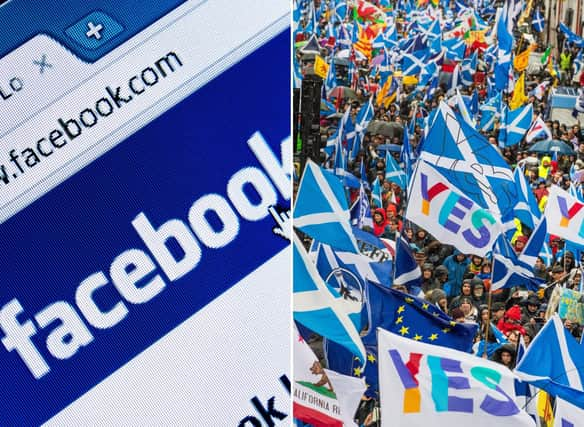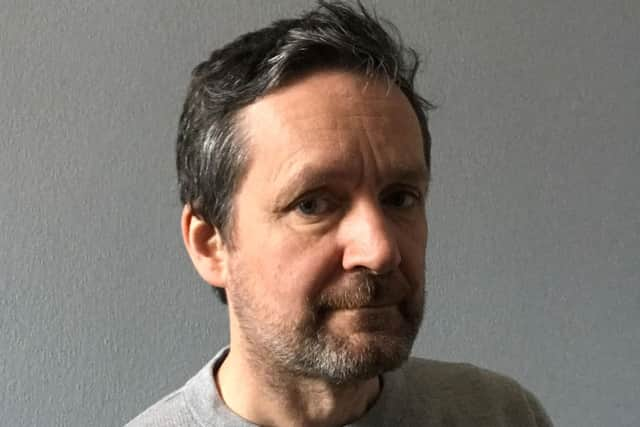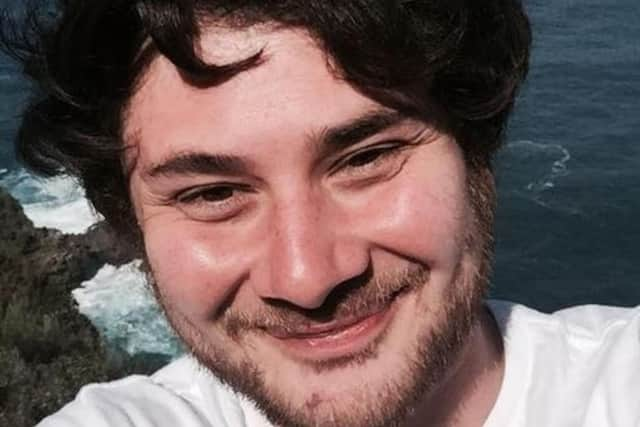Facebook turns 17: How has Facebook changed the way we live and interact in Scotland?
This article contains affiliate links. We may earn a small commission on items purchased through this article, but that does not affect our editorial judgement.


Most people use it every day. That is, 1.73 billion people daily – though there are 2.6 billion accounts.
More than 50 million of us use it here in the UK. And in Scotland there are around 4.18 million users.
Advertisement
Hide AdAdvertisement
Hide AdToday, the social media titan – which also owns Whatsapp and Instagram - turns 17.
Before February 4, 2004, tagging friends in photos wasn’t a thing. Neither was updating everyone about your relationship status, or ‘checking in’ to tell friends where you are at that exact moment. Or arguing with a complete stranger in the comments section.
Then, Mark Zuckerberg and his college friends invented The Facebook, and the world as we knew it was no more.
We seem to have a love-hate relationship with the planet’s biggest social media platform.
On one side it has become an integral part of our lives. People use it to share photos, stay connected with family, direct message each other.


During the coronavirus pandemic, when we’re all separated by lockdowns, social media has become perhaps more vital than ever. It makes us feel connected, not so alone, more...human.
We trust Facebook with our photographs, our private messages, secrets, our interests, what we like to buy, and our political views. But should we?
In recent years the spread of fake news, privacy scandals, political interference have led to people logging off forever.
Advertisement
Hide AdAdvertisement
Hide AdSo, as it marks 17 years, it’s worth asking: has Facebook changed our lives for the better or worse?


‘Nuance and compromise have found little place in discussions of Scottish independence’
In the world of Scottish Facebook, the comments sections are often divided along the lines of Scottish independence.
Dr Michael Higgins, programme leader in media and communication at the University of Strathclyde, said: "Where the dominant political issues are diametrical and tribal, the design of Facebook will tend to worsen divisions; gathering users into echo chambers and leaving off-the-cuff political remarks open to public comment.
"Nuance and compromise have found little place in discussions of Scottish independence, and – while Facebook may not have worsened constitutional rancour – it has certainly provided a platform and frequently introduced division amongst family and friends.”
Meanwhile, a pandemic is raging.
"A lie can travel around the world and back again while the truth is lacing up its boots.” So goes the famous phrase often attributed to Mark Twain (or perhaps not).
Whoever came up with that line could never have imagined the reality we face today, where scientific fact is twisted and questioned and mistruths spread a million times faster online.
"Facebook has assisted in democratising public discourse by giving all of us a voice,” says Dr Higgins.
Advertisement
Hide AdAdvertisement
Hide Ad"In a way that is far more accessible and demands less competence than we see in weblogs or other social media platforms, Facebook offers inviting and easy place to cut and paste our beliefs for our friends and often beyond, without the least regard to how well-reasoned they happen to be.
"As a consequence, public discourse is more diverse but less informed.”
Dr Higgins points to a recent survey among journalists, which identified Facebook as the ‘biggest spreader of misinformation’ about Covid.
Facebook has pledged to use its content review system to ‘reduce the distribution’ of possible fake news until its veracity is checked.
But Dr Higgins says: "Their attitude to Covid could show a far greater urgency. While banning anti-vax advertising in October 2020, Facebook admit their systems to remove false Covid claims won’t succeed ‘overnight’.”
And what impact has Facebook had on the not-fake news?
“‘Shareability’ has emerged one of the factors that marks out newsworthiness,” says Dr Higgins.
"Shareable qualities such as popular appeal and controversy have a place in news of course, but the problem with insisting a story be shareable is that these take an undue prominence in shaping the news agenda.”
Advertisement
Hide AdAdvertisement
Hide AdUltimately, he says: "Facebook is undoubtedly complicit in the deterioration of news and political discourse, but it also provides social and familial connection.”
‘Facebook isn’t cool anymore because mum’s on it’
Dr Ben Marder is a Marketing lecturer at the University of Edinburgh, and a self-proclaimed ‘social media research nerd’.
He worked on a paper discussing the ‘Chilling Effect’ of social media – which is the idea that we censor ourselves and carefully manage the person we present online to please our ‘audience’.
"The chilling effect is more prominent on sites like Facebook with multiple audiences – employers, family members, everyone,” says Dr Marder.
This effect has led to an ‘exodus’ from Facebook, with many young people moving to Instagram and Snapchat.
"Facebook wasn’t cool anymore because mum’s on it,” says Dr Marder, “Young people have moved to avoid the pitfalls of getting told off.
"The appeal of Snapchat is it’s ephemeral, it goes away a few seconds after that person has seen it. On Instagram you only post your highlights, and the more ‘behind the scenes’ stuff goes on stories.”
So does this desertion of Facebook mean, a few years down the line, it will no longer be used? Are we breaking up with Facebook?
Advertisement
Hide AdAdvertisement
Hide AdDr Marder doesn’t think so. “I remember on its 10th birthday there was a prediction it would be gone by 2022.
"Young people don’t use Facebook so much but they do use Facebook messenger. That’s key.
"Facebook’s always going to be there as the major social media site, and as young people grow older they’ll come back to it.
"Although it’s not cool now it still has a core following in Gen Y. One in three people use it every day.”
Facebook, privacy and real life
Another side of Dr Marder’s research shows social media also affects how we behave offline, with people acting like they are under constant surveillance from online friends and family.
In a world where almost everyone has a mobile phone, everything you do can easily be uploaded online and seen all over the globe in a matter of swipes.
He says: "There are lots of privacy activists fighting against that. It’s having an effect on our behaviour in reality.
"You could make it seem really Orwellian but I think most people are relatively aware of that goes on and are still happy enough to use it.
Advertisement
Hide AdAdvertisement
Hide Ad"It seems like regularly there are a number of privacy issues.”
Facebook was put under the spotlight when The Cambridge Analytica scandal uncovered vast issues with privacy and political campaigning.
In the words of Mark Zuckerberg himself: “We didn’t do enough to prevent these tools for being used for harm... And that goes for fake news, foreign interference in elections and hate speech as well as developers and data privacy.”
Documentaries like The Great Hack and more recently The Social Media Dilemma have raised serious concerns about our relationship with Facebook and social media.
Then there’s the effect on our mental health.
"One issue of social media is social comparison,” says Dr Marder, “Like when you look on Linked In and your friends have got a promotion, or on Instagram everyone’s doing these wonderful things, and you don’t feel like you are having the same.
"This is leading to feelings of sadness and depression.”
One third of Scots in a 2019 survey said they had become addicted to social media, and experts have long warned about the impact on our mental health.
So why do we still use it? "It’s so game-ified. We get these hits, and instant gratification with it. It’s also driven by self esteem. The impact on the self is negative but the entertainment value keeps us coming back,” Dr Marder says.
“You can debate the good and the bad but the crux of it is their member and usership is growing."
Advertisement
Hide AdAdvertisement
Hide AdSo where does that leave us? We live in an online world and Facebook is one of the biggest fishes riding the current alongside many others.
Despite the deterioration of public discourse, privacy issues, and mental health concerns, it seems people are still willing to use social media. Though it remains to be seen how much responsibility these companies are willing to take in preventing their tools being used for harm.
Our relationship with Facebook is a complicated one but it is one that is here to stay.
Facebook was contacted for comment but declined.
A message from the Editor: Thank you for reading this article. We're more reliant on your support than ever as the shift in consumer habits brought about by Coronavirus impacts our advertisers.
If you haven't already, please consider supporting our trusted, fact-checked journalism by taking out a digital subscription.